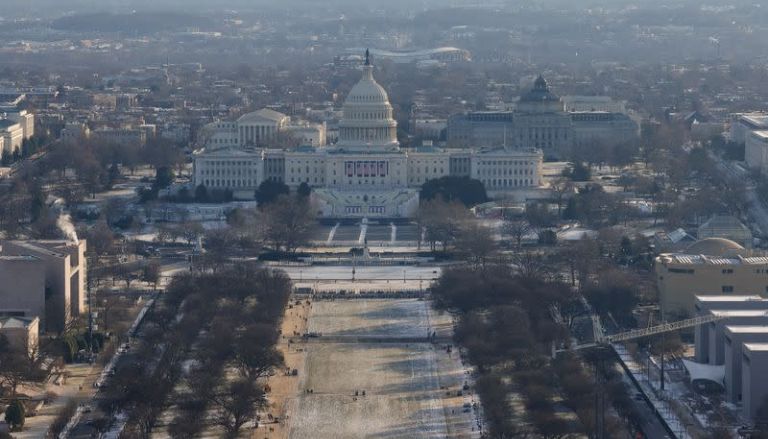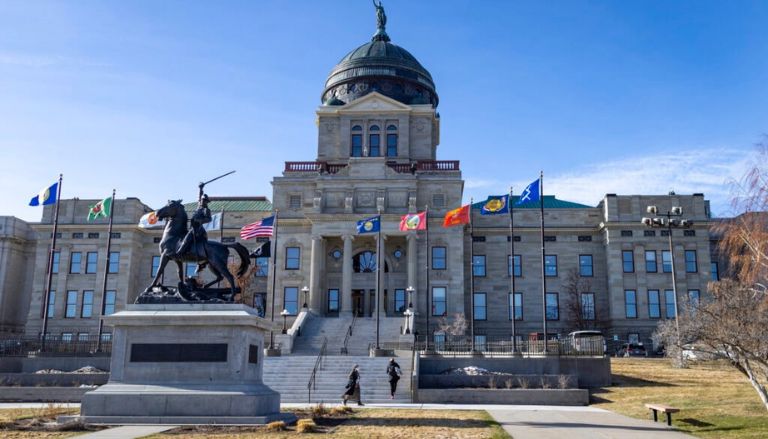BALTIMORE — Maryland has 160,000 federal workers, which is the second-highest number in the country, after Washington, D.C.
President Donald Trump’s new executive order will require all government employees to work in the office and will end the option of working remotely.
Senator Chris Van Hollen from Maryland said that the strategy for federal workers to return to the office needs careful adjustment, not a heavy-handed approach. He also mentions that the government already had a telework program before the pandemic.
“Before the COVID pandemic, there was a federal telework policy that allowed flexible working and had support from both Republicans and Democrats,” said Sen. Van Hollen. “I think we’ve been too slow in getting people back to work in the offices after COVID, but we also don’t want a policy that works for everyone.”
The executive order allows for some discussion, letting heads of departments and agencies make exceptions.
A report from the Biden Administration’s Office of Management and Budget in 2024 says that 54% of government workers are already working fully in person because their jobs need it. The remaining 46%, which is 1.1 million people, can work from home.
The government has about 2.3 million employees, but only 10% of them were allowed to work completely from home.
“Defend the hardworking Marylanders”
Maryland Governor Wes Moore says he will keep supporting government workers despite the new changes from the administration.
Maryland Senator Angela Alsobrooks says the orders are aimed at government workers.
“They’re studying cures for cancer at the National Cancer Institute in Frederick and Bethesda. The FDA in Silver Spring is ensuring our food is safe. “They are providing benefits to seniors at the Social Security Administration in Woodlawn,” Alsobrooks said. “Regardless of who is president, these workers are getting the job done.” I will always support and protect the hardworking people of Maryland who have dedicated their lives to serving the federal government and the American public.
A series of executive orders
On his first day in office, President Donald Trump quickly signed several executive orders to reverse the policies of the Biden government.
In addition to the return-to-office policy for federal workers, there is a new executive order that puts a hiring freeze in place for government jobs, except for military positions and a few other specific categories.
Another executive order aims to bring back “Schedule F,” a policy introduced by the Trump administration in 2020, which President Biden canceled shortly after he took office.
The policy aims to bring back responsibility in jobs that influence policy. In 2020, the order aimed to change the classification of thousands of government jobs, which reduced job security for existing employees.
The American Federation of Government Employees, which represents 800,000 federal workers, stated that America’s civil service is based on ability and has protections against corruption for federal employees. This statement is in response to the debated “Schedule F” hiring practice. Changing professional jobs in the civil service to Schedule F is wrong because it goes against what American citizens want. They expect government employees to be hired only based on their skills for the job.
CBS News reported that in 2024, The Office of Personnel Management rules will bar career civil servants from being reclassified as political appointees, or as other at-will workers, who are more easily dismissed from their jobs.
MARC train provides service for government employees
The MARC train reported that more people were using the service at the end of 2024. They aim to increase traffic by 10% this year, but they believe they will exceed that goal.
“Right now, we’re seeing about 50% of the number of riders we had before the pandemic, so we have space available. We’re happy to have people back on the trains,” said David Johnson, the deputy director of operations for MARC Train. “If things happen as they look like they will, I believe we will go beyond that.”
Johnson said that any government worker going back to the office can apply for SmartBenefits, which can help pay for some or all of their travel costs.







Leave a Comment